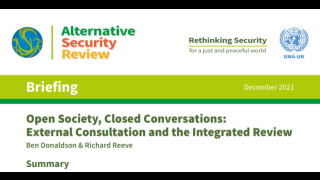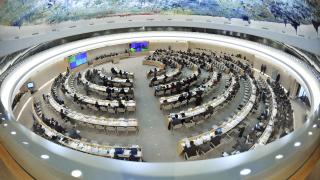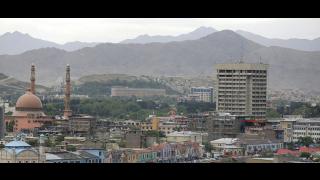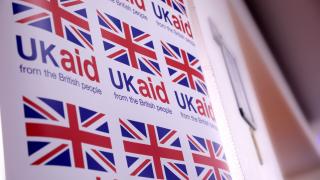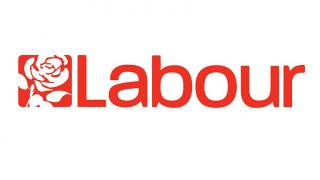
UNA-UK has written to UK political parties asking them for a clear statement outlining their vision for the UK's relationship with the United Nations. The responses are reproduced on our website in the order they were received. They represent the most comprehensive and, in some cases, the first UN-focussed party statements.
This work is part of UNA-UK's year-long campaign to promote informed debate on foreign policy, in particular, Britain's role at the UN, ahead of the general election on 7 May. While these matters are now - very belatedly - starting to be debated, these conversations are happening in reaction to events, a hallmark of successive UK governments' foreign policy.
UNA-UK is deeply concerned that British policy-makers have consistently underestimated the need to invigorate and develop the UN, which is essential to solving many of the serious challenges facing the UK and the world. If you agree, join us in calling for an active and progressive UK foreign policy
The Labour Party’s position on the UK and the United Nations
The world in which we live is constantly evolving. Globalisation has allowed for the fast flow of goods, services, finance, people and ideas across state boundaries, and a new global architecture has developed to support these exchanges. But with this increased connectivity between countries and people comes a mutual responsibility. What once affected one state, can now affect all. So, as well as national foreign policy prescriptions, global solutions are required to tackle the challenges shared by the international community. Under a Labour Government, Britain will be outward-facing, with British assets and resources used to multiply and amplify our influence around the world to help us effectively protect British citizens, promote our values and beliefs, and defend our national interests. Only by doing so can we hope to build a better, safer and more just world in which everyone can reach their full potential and prosper.
An incoming Labour Government will conduct a Strategic Defence and Security Review in the first year of government, fostering an open and inclusive national debate on the security and defence challenges facing the country. Similarly, we will undertake a wide ranging review of how Britain projects both its interests and its values internationally. This review, commissioned by and reporting directly to the Prime Minister, will provide the backdrop to the National Security Council’s existing work. Importantly the review would ensure that aspects of foreign policy that don’t fit neatly into a ‘security’ framework are given due weight, including, for example, the importance of our relationship with Europe and our strategy for engagement with other multilateral institutions. Within the Foreign Office, a further Strategic Diplomacy Review would also be conducted to review the workings of the FCO itself and how it can best support that strategy for projecting Britain’s values and interests abroad. This work would take place in parallel to the Strategic Defence and Security Review.
Britain remains a global player and we can continue to have real influence in the world but we realise there are limits to what Britain can achieve alone in a globalised world. Bilateral diplomacy, or a foreign policy driven solely by short-term commercial interest, is not sufficient to deal with global or regional issues that transcend national borders. That is why we will work to maintain and strengthen our partnerships with existing allies, and seek to establish new partnerships to achieve our strategic foreign policy objectives. Labour believes that transnational issues, such as terrorism, global poverty and climate change, can only be tackled effectively through multilateral cooperation. From the UN, to the EU, to the G20, we will better engage with our international partners and work multilaterally wherever possible to help find global solutions and to advance and defend our interests. As a permanent member of the UN Security Council, we will continue to pay our dues in line with UN financial regulations.
Effective multilateral cooperation, however, also means that regional and global institutions will need to become more representative and will have to better reflect the current geo-political outlook. Labour strongly supports reform of the UN Security Council, as part of a wide range of UN reforms. We believe that the 2005 UN report on reform should be the starting point for discussion- which could include permanent seats for Brazil, India, Germany and Japan, together with permanent African representation. Labour also believes that Britain can further enhance its engagement with the UN, especially in the areas of peacekeeping, human rights and international development.
The UK has long played an active part in United Nations peacekeeping missions, and we are the world’s fifth largest provider of assessed contributions to the UN peacekeeping budget. British military personnel are currently serving with distinction in UN peacekeeping missions in Cyprus, the Democratic Republic of Congo and South Sudan, helping to foster regional peace and security. Our service personnel- whether infantry soldiers, engineers, medics or communication experts- have the skills essential for successful peacekeeping. A Labour Government will continue and deepen our support for such operations with the UN, EU and others, to help provide vital security and stability across the world. With the deployment of Royal Navy ships, Army helicopters, RAF reconnaissance and transport planes as part of the recovery effort in the Philippines following Typhoon Haiyan, and RFA Argus and troops deployed to Sierra Leone in the wake of the Ebola crisis, we have seen the immense benefit that UK Forces can bring in the wake of natural disasters and humanitarian crises.
Labour’s leadership on human rights will not be restricted by UK borders, and we will continue to support states transitioning towards democracy. Labour recognises that women are fundamental to bringing about democratic, economic and social change. Labour will support and promote women’s political, social, economic and human rights worldwide, including in fragile and conflict-affected states, in order to help achieve gender equality, the eradication of poverty, and inclusive economic growth. Labour is committed to maintaining and enhancing international labour standards and protecting workers’ rights at home, and championing them abroad. We will also seek to support and to enhance European and international governmental initiatives for corporate social responsibility, business and human rights, such as the UN Guiding Principles on Business and Human Rights.
Around the world millions of lesbian, gay, bisexual and transgender people face criminalisation, hatred and persecution. Labour will appoint an International LGBT Rights Envoy to promote respect for the human rights of LGBT people. We will work tirelessly through multilateral forums like the UN towards the decriminalisation of homosexuality worldwide, the protection of trans people, and the repeal of “anti-propaganda” and other discriminatory laws and practices. We will also ensure our development cooperation meets the needs of LGBT communities and aids human rights activists.
It is simply wrong for any group or individual to be persecuted because of their faith. According to the International Society for Human Rights, Christians are the victims of 80 per cent of all acts of religious discrimination in the world today. In the face of persecution on this scale, neither ignorance nor fear of offence can be an excuse for standing by on the other side in silence. That is why a Labour Government will appoint a Global Envoy for Religious Freedom, reporting directly to the Foreign Secretary. More also needs to be done to try and harness the concern, expertise and understanding of faith leaders from across the UK and beyond. So in addition, Labour will establish a multi-faith advisory council on religious freedom within the Foreign and Commonwealth Office.
Finally, as an outward facing, internationalist party, Labour will restore the UK’s role as the champion of development and tackling inequality globally. A Labour Government will maintain the UK's commitment to spend 0.7 per cent of gross national income (GNI) on overseas aid and use our influence to persuade others to meet their commitments too. We realise that 2015 presents a historic opportunity for the world to unite behind driving forward sustainable development and combatting climate change. A Labour Government will work with other UN member states at this year’s Sustainable Development Goals Summit to unite the world to eradicate extreme poverty, tackle growing economic inequality and place human rights at the heart of development. We will also push for an ambitious agreement on climate change at the UNFCCC conference in Paris in December. A Labour Government will make the case for ambitious emissions targets for all countries, strengthened every five years on the basis of a scientific assessment of the progress towards the 2C goal. And we will push for a goal of net zero global emissions in the second half of this century, for transparent and universal rules for measuring, verifying and reporting emissions, and for an equitable deal in which richer countries provide support to poorer nations in combating climate change.
In conclusion, while today’s global environment brings with it significant challenges from a growing international interdependence, it also brings significant opportunities. A Labour Government will promote an active and engaged British foreign policy, working with our partners worldwide, which is the best way to promote and protect our values and interests. As progressives, we believe we have a unique responsibility to reject an inward-looking approach that suggests we should simply turn our backs on the world.
Click here to read the question as it was posed to parties
Click here to read the other parties' responses
NB. party responses have been publised in the order they were received


